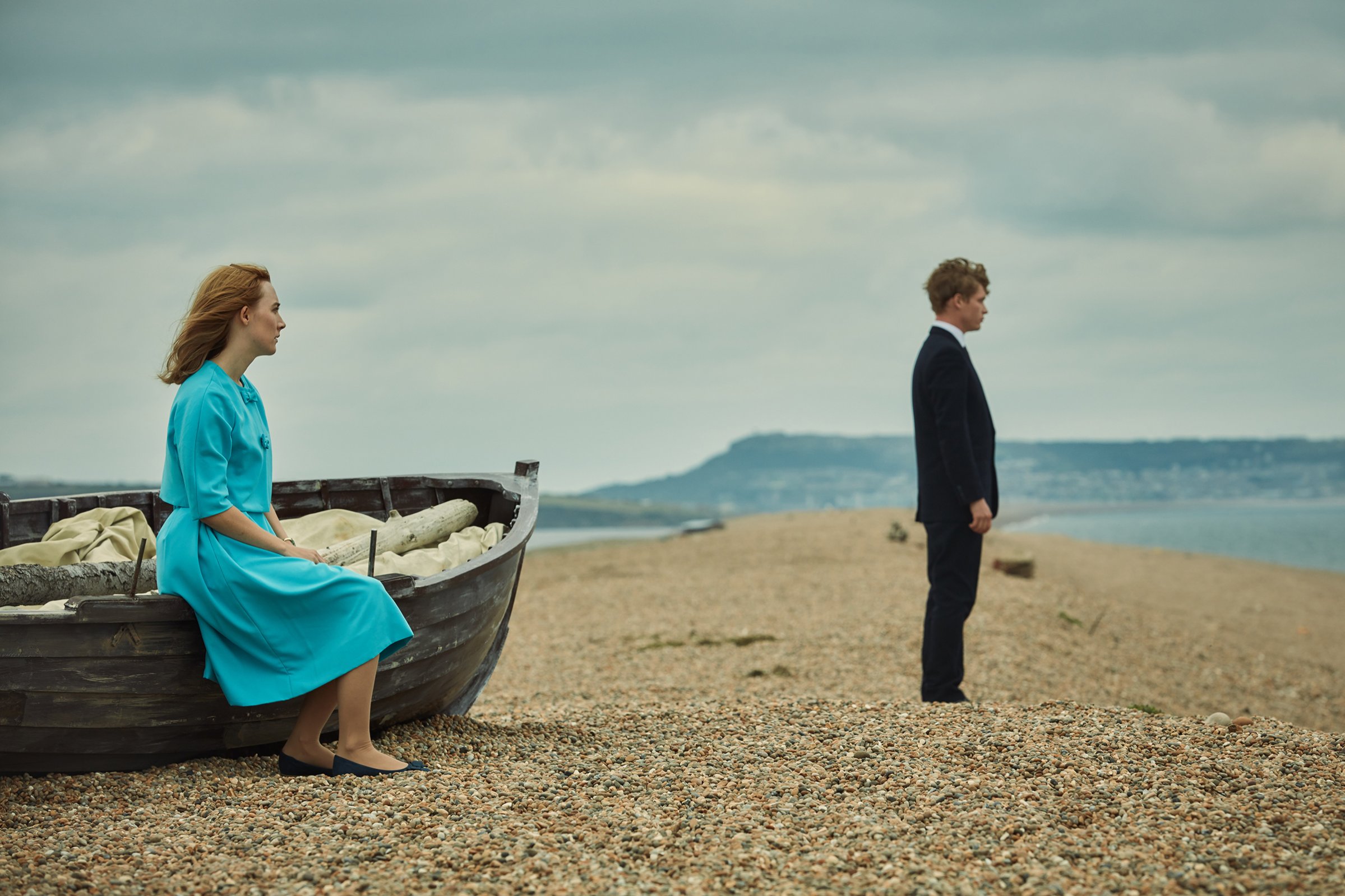
There’s nothing sadder than a couple who can’t talk things through, and it’s particularly wrenching to watch young people struggle with the dance steps of this elusive life skill. In Dominic Cooke’s contemplative drama On Chesil Beach, the young people in question are Florence (Saoirse Ronan) and Edward (Billy Howle), a newly minted husband and wife attempting a honeymoon by the seaside in 1962 England. Edward is eager but nervous–the whole removing-the-stockings thing is so foreign to him, it may as well be a Martian ritual. Florence loves him, but cringes at the very idea of being touched–in flashback we see her reading one of the era’s typically businesslike sex manuals and blanching at the word penetration. What will become of these two? Will they ever get it together and get it on?
That’s the major dramatic question of On Chesil Beach, adapted with care by Ian McEwan from his 2007 novel. The story accepts from the start England’s stereotypical reputation of the time as a hotbed – or a cold one? – of sexual repression. But this isn’t a story about preconceptions. It’s about people, and its true secret weapon is its actors.
The duo’s history unfolds in dovetailing flashbacks: Edward is a bookish kid from a troubled middle-class family; his mother (Anne-Marie Duff) suffers from the repercussions of an accidental brain trauma. Edward is a vessel of confused longing, anxious to do the right thing but curtailed by his own frustration and subterranean anger. Florence, an accomplished violinist, squirms under the gaze of her icy, snobbish mother (Emily Watson). Florence isn’t tormented by her jitters; she merely lives with them, and that’s a hundred times worse. Her radiance is heart-stopping – it just doesn’t translate into sexual desire.
Together, Howle and Ronan – both of whom also appear in Michael Mayer’s recently released adaptation of The Seagull – make a bumpy contour map of the way society’s mores, plus basic personal fears, can really do a number on a human’s expectations of romantic partnership. The film ends with a syrupy coda that betrays its earlier subtlety. But Ronan and Howle are the keepers of its true spirit. Florence and Edward are players in a missed connection that nevertheless connects them forever.
More Must-Reads from TIME
- Donald Trump Is TIME's 2024 Person of the Year
- Why We Chose Trump as Person of the Year
- Is Intermittent Fasting Good or Bad for You?
- The 100 Must-Read Books of 2024
- The 20 Best Christmas TV Episodes
- Column: If Optimism Feels Ridiculous Now, Try Hope
- The Future of Climate Action Is Trade Policy
- Merle Bombardieri Is Helping People Make the Baby Decision
Contact us at letters@time.com